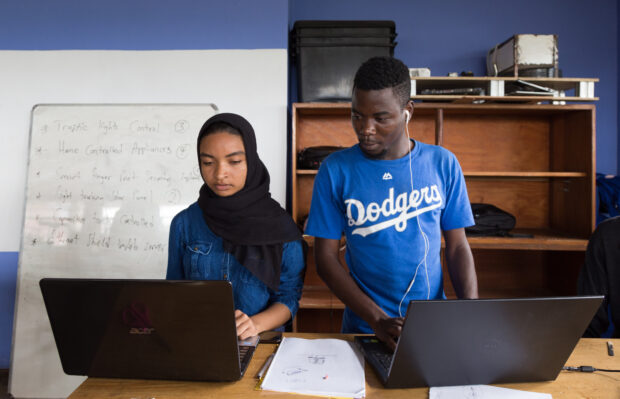Digital public infrastructure (DPI) offers huge potential for economic growth and innovation; to empower citizens; to foster entrepreneurship; and to drive sustainable development. However, without a cohesive strategy to systematically include women, the true benefits of DPI will not be realized.
In Africa, women make up approximately 50% of its population. However, they often live in extreme poverty with lower levels of income, education, and access to digital technology and services.
Leading African voices and institutions, such as the African Union, have clearly articulated objectives around digital transformation and the need to harness digital technologies to promote integration, inclusive economic growth and job creation, and eradicate poverty.
Why Gender? Why Now?
Within this push for digital transformation, the unique needs of women are not yet fully considered. While many African countries recognize the importance of gender inclusivity in their societies, most of the gender-inclusive policies and strategies have been disparate. As a result, women continue to suffer the consequences of a lack of concerted effort to include them in all stages of digital transformation.
This research will therefore advance gender inclusion in digital transformation – a deliberate approach to the design, development, deployment, access, and use of digital public infrastructure that takes into consideration the capabilities, needs, preferences, and rights of women.
What Do We Seek To Do?
To begin with, our research will look at the following issues:
- Gender inclusion related to digital ID and payments.
- Gender inclusion, digital rights, and safeguards related to data governance.
With a focus on Ghana, the objective is to bring to light the exclusive and disparate nature in the implementation of DPI and how this affects women, their financial inclusion, economic empowerment, digital rights, safety, and well-being.
The research will use qualitative research methods, including interviews with Ghanian women, to highlight the lived experience of DPI and data governance. The documented findings will be captured through blog posts, photos and videos, and a whitepaper. The whitepaper will document its findings (outcomes) and recommendations, and will also seek to propose a cohesive strategy to address the critical areas of gender inclusive design, development, deployment, access, and use of DPI.
This body of work is part of our inaugural research fellowship which aims to explore the opportunities, risks, and interdependencies between DPI and climate resilience, gender inclusion, and good governance of digital platforms. Read more about the fellowship.
We understand and value the importance of incorporating external views and diverse perspectives to enrich our understanding and drive innovation. As such, we invite you to connect and partner with us, and we welcome your perspectives and expertise on this topic. For more information, please email cmeier@dial.global.
For More
The Africa Digital Rights Hub have explored some recent trends around DPI and gender in West Africa. Read some of the insights they surfaced on:






